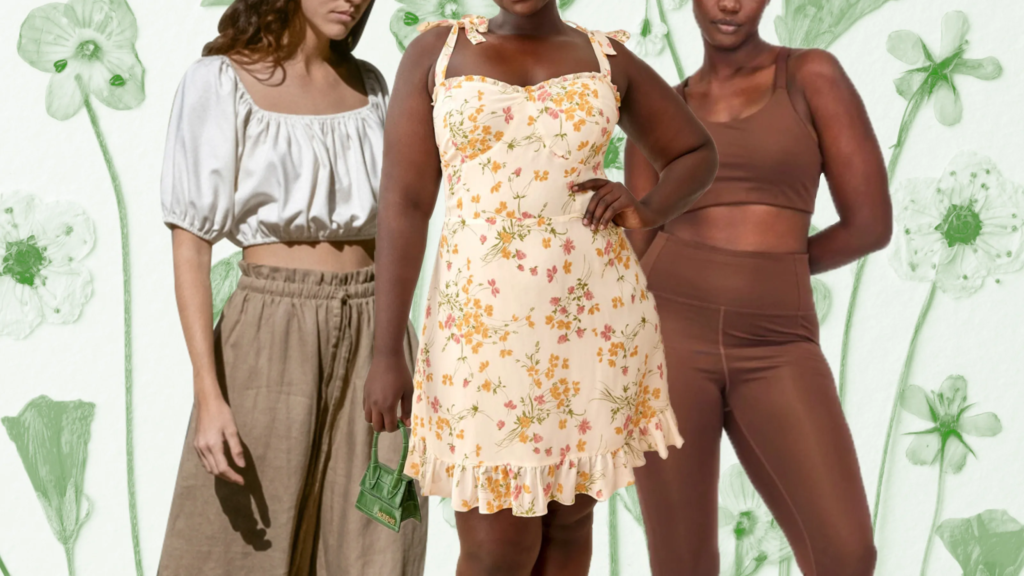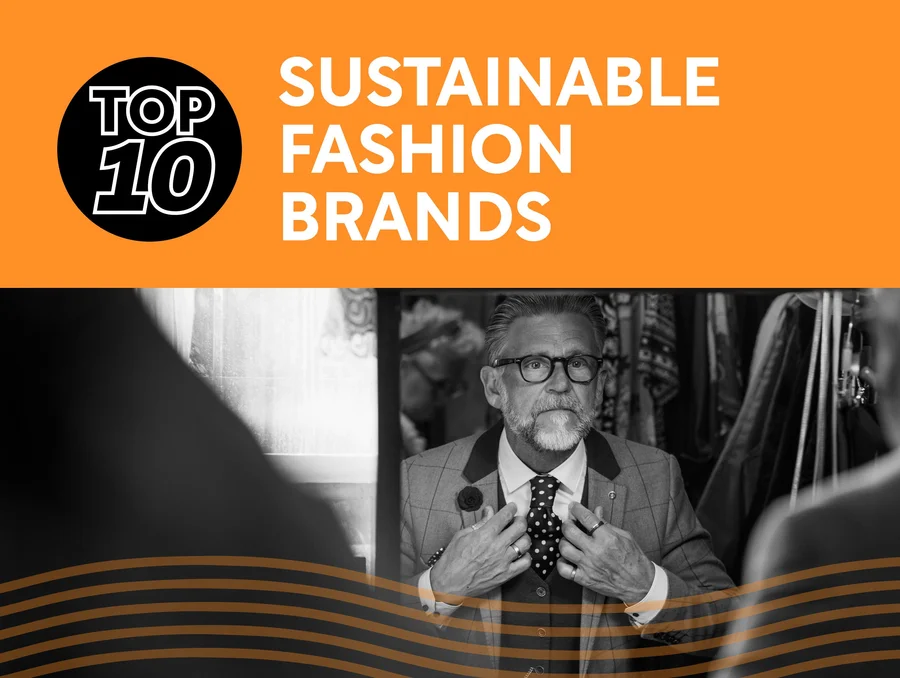10 Must-Know Sustainable Clothing Brands in 2024

Content Index
The top sustainable fashion brands making a change to the industry include Patagonia, Adidas, Nike, Prada, Marks & Spencer and Lululemon

Fashion is not an industry renowned for its sustainability.
Each year, it produces around 92 million tonnes of textile waste and much of this ends up in landfills and waterways.
Around 60% of material made into clothing is plastic according to the United Nations Environment Programme – and plastic-based materials like polyester, acrylic and nylon are common names on clothing labels.
You may also like
Waikanae’s Bohanna Motors wins coveted Mobil Seller Service Station of the 12 months award
However, there are brands trying to make a change.
From greenhouse gas emissions and renewable energy procurement to repair programmes and refurbished items, the industry is not lost.
We have ranked 10 of the top sustainable fashion brands.
You may also like
Trump says he has no plans to fire Fed’s Powell; market jumps
10. H&M
- Founded: 1947
- Employees: 143,000
- Director of Sustainability: Leyla Ertur
- CEO: Daniel Ervér
H&M aims to achieve net zero emissions by 2040 and move towards a circular economy to reduce reliance on new resources.
Leyla Ertur, Director of Sustainability at H&M, says: “We want to make sure customers shopping in this price bracket don’t have to compromise and that they can find fashionable clothes that are also sustainable. Circularity is the key.
“What is clear though is that our industry has to stop overproduction. It doesn’t make sense for business nor for the planet.”
You may also like
The 10 Driest Cities in the U.S., Ranked
9. Gucci
- Founded: 1921
- Employees: 21,000
- Head of Sustainability & Circularity: Nevio Benvenuto
- CEO: Stefano Cantino
Since 2018, Gucci has been carbon neutral in its own operations and entire supply chain. It made the decision to go beyond carbon neutrality in 2021, pursuing a nature-positive approach that protects and restores forests and mangroves whilst investing in regenerative agriculture.
Kering, the brand’s parent company, pioneered Environmental Profit and Loss Accounting to measure factors like greenhouse gas emissions, air and water pollution, water consumption, land use and waste production.
8. Burberry
- Founded:1856
- Employees: 9,330
- Vice President Corporate Responsibility: Caroline Laurie
- CEO: Joshua Schnulman
Known for its iconic trench coats and check pattern, Burberry is committed to increasing the use of more responsibly sourced and certified key raw materials in its products by Spring 2030. Its innovation team is focussed on sourcing next-gen material and process alternatives to decarbonise the business.
You may also like
American Washing Machines Are the Worst Appliances Ever
All cotton used for its Heritage Trench Coats is woven from 100% organically grown cotton at its heritage manufacturing sites in Yorkshire, England.
7. Levi’s
- Founded: 1853
- Employees: 19,000
- CSO: Jeffrey Hogue
- CEO: Michelle Gass
“There’s no denying that the fashion industry plays a part in today’s climate crisis,” Levi’s says.
The brand is taking steps across its business to adopt new practices that have less negative impact on the planet. Its Climate Transition Plan details its path for the future including achieving a 42% absolute reduction in supply chain emissions by 2030.
Jeffrey Hogue, Chief Sustainability Officer at Levi Strauss & Co., explains: “We’re scaling up what works, innovating where it’s needed and collaborating with the industry to do our part.”
6. Prada
- Founded: 1913
- Employees: 14,800
- Head of Corporate Social Responsibility: Lorenzo Bertelli
- CEO: Andrea Guerra
In 2023, 100% of Prada’s textile waste was recycled, it owned 18 photovoltaic plants and purchased more than 85% renewable electricity globally.
Its Re-Nylon Collection, launched in 2019, is made of ECONYL, a regenerated nylon yarn that can be recycled indefinitely without affecting the material’s quality. The Prada Re-Nylon for SEA BEYOND Collection supports a partnership with UNESCO to raise awareness of ocean preservation. “This collection allows us to make our contribution and create products without using new resources,” explains Lorenzo Bertelli, Head of Corporate Social Responsibility at Prada Group.
5. Marks & Spencer
- Founded: 1884
- Employees: 65,000
- Head of Raw Material, Packaging and Sustainability: Katharine Beacham
- CEO: Stuart Machin
Plan A, M&S’s approach to ESG, is its promise to source and make its products with care and is integral to its Reshape M&S strategy for sustainable, profitable growth. It aims to become a net zero business across its value chain by 2040.
“We want to be the most trusted retailer, doing the right thing for customers, with quality products at the heart of everything we do,” explains Stuart Machin, CEO at M&S.
4. Lululemon
- Founded: 1998
- Employees:30,000
- Senior Vice President, Global Sustainable Business & Impact: Esther Speck
- CEO: Calvin McDonald
Lululemon’s Impact Agenda is integrated into its overall strategy and operations as the company believes individual, community and planetary wellbeing are all linked.
“As we continue our Impact journey, partnership and collaboration remain important components of our approach to navigating and helping to solve the complex environmental and social challenges we face,” says Esther Speck, Senior Vice President, Sustainable Business & Impact.
When zips, seams or other parts of a Lululemon garment break, the company says it will fix them “on the house”.
3. Nike
- Founded: 1964
- Employees: 83,700
- CSO: Jaycee Pribulsky
- CEO: Elliott Hill
All of the waste in Nike’s extended supply chain is diverted from landfill, and at least 80% of this is recycled back into Nike products and other goods. Further contributing to circularity, it also offers recycling and donation services and sources a mix of eligible returns and open box footwear for refurbished sales.
Nike collects local vintage and deadstock products and uses the materials to create newly designed and manufactured pieces.
2. Adidas
- Founded: 1849
- Employees: 59,000
- Head of Sustainability, North America: Kara Solomonides Brody
- CEO: Bjørn Gulden
Nine out of 10 Adidas articles show environmental benefits compared to conventional articles due to the materials used and it has reduced greenhouse gas emissions per product by 15%.
Adidas is also encouraging sustainability among its people. “We empower our employees to become sustainability ambassadors, just as we invite consumers globally to engage and connect with us on the topic of sustainability,” the company says.
The brand is a founding member of sustainable clothing initiatives including the Leather Working Group, Better Cotton and the Fair Labour Association.
“Our company has set very clear targets on what we want to achieve, and we will do exactly that,” says CEO Bjørn Gulden.
“This industry, and especially Adidas, has done a lot of good stuff for the planet over the last 30 years.”
1. Patagonia
- Founded: 1973
- Employees: 3,000
- Head of Environmental Impact: Kim Drenner
- CEO: Ryan Gellert
Patagonia was established with a mission to support outdoor adventures and has long been a trailblazer in environmental conservation. Since 1985, the company has pledged 1% of its sales towards preserving and restoring the natural environment. Founder Yvon Chouinard encourages other businesses to follow this model.
Manufacturing materials contribute around 85% of its yearly emissions so for nearly three decades, Patagonia has sought ways to minimise this impact. In 1996, it began using only organically grown cotton for products containing virgin cotton. The company aims to eliminate all virgin petroleum-based materials from its products.
In 2022, Yvon transferred Patagonia’s ownership to a trust and a non-profit organisation to ensure the company’s profits are used solely to combat climate change. “While we’re doing our best to address the environmental crisis, it’s not enough,” he said when announcing the decision.
